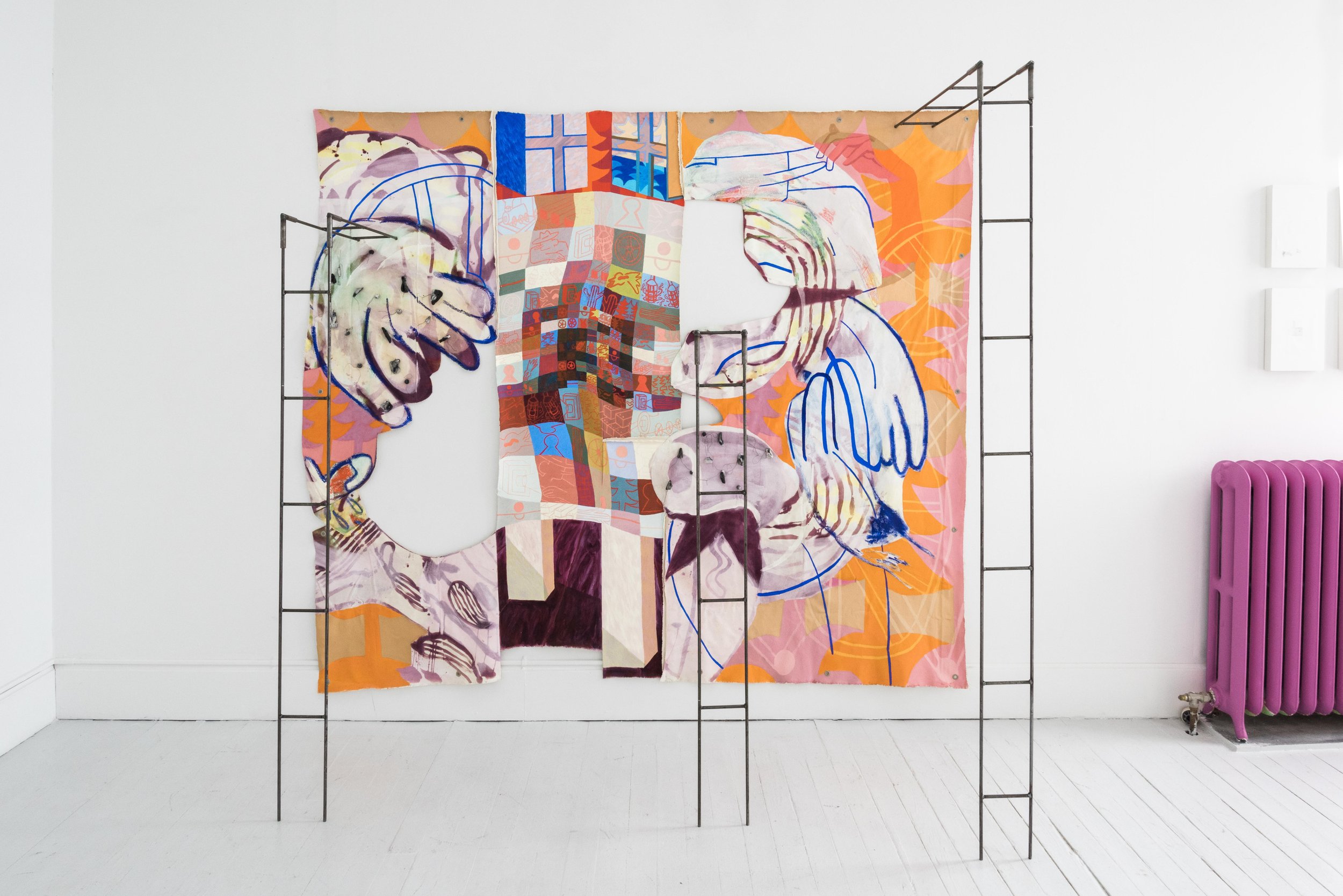
Neon Heater, Findlay OH 2022
Hannah Parrett’s most recent body of work engages folklore surrounding the American West in the form of oil paintings and gouache drawings. She uses visual resources from the 1940’s Annie Oakley comic combined with her personal experiences growing up in the Black Hills, South Dakota to develop an archive of symbols to work with. This process seeks to re-define representations of Manifest Destiny, Cowgirl Feminism, and other mythologies constructed from regional relationships with landscape.
In the no man’s land between fictional archaeological inventory and autobiography, Nick Larsen has found terrain to map and mine both what’s present and visible in the desert landscape and, maybe more importantly, what isn’t—a fantasy about what might be, what might have been, and what could be in the "empty" spaces of the western U.S. This speculative groundwork supports other preoccupations: camouflage as landscape painting, fire retardant dispersal as action painting, color naming, place naming, ghost town reoccupation, punk merch, interior design mood boards, map legend poetics, subcultural signaling, sewing as a form of drawing, making do, shotgun spray on roadside signs, vestiges and artifacts, excavation and survey patterns, and the meaningful human activity that transforms a place into a site.
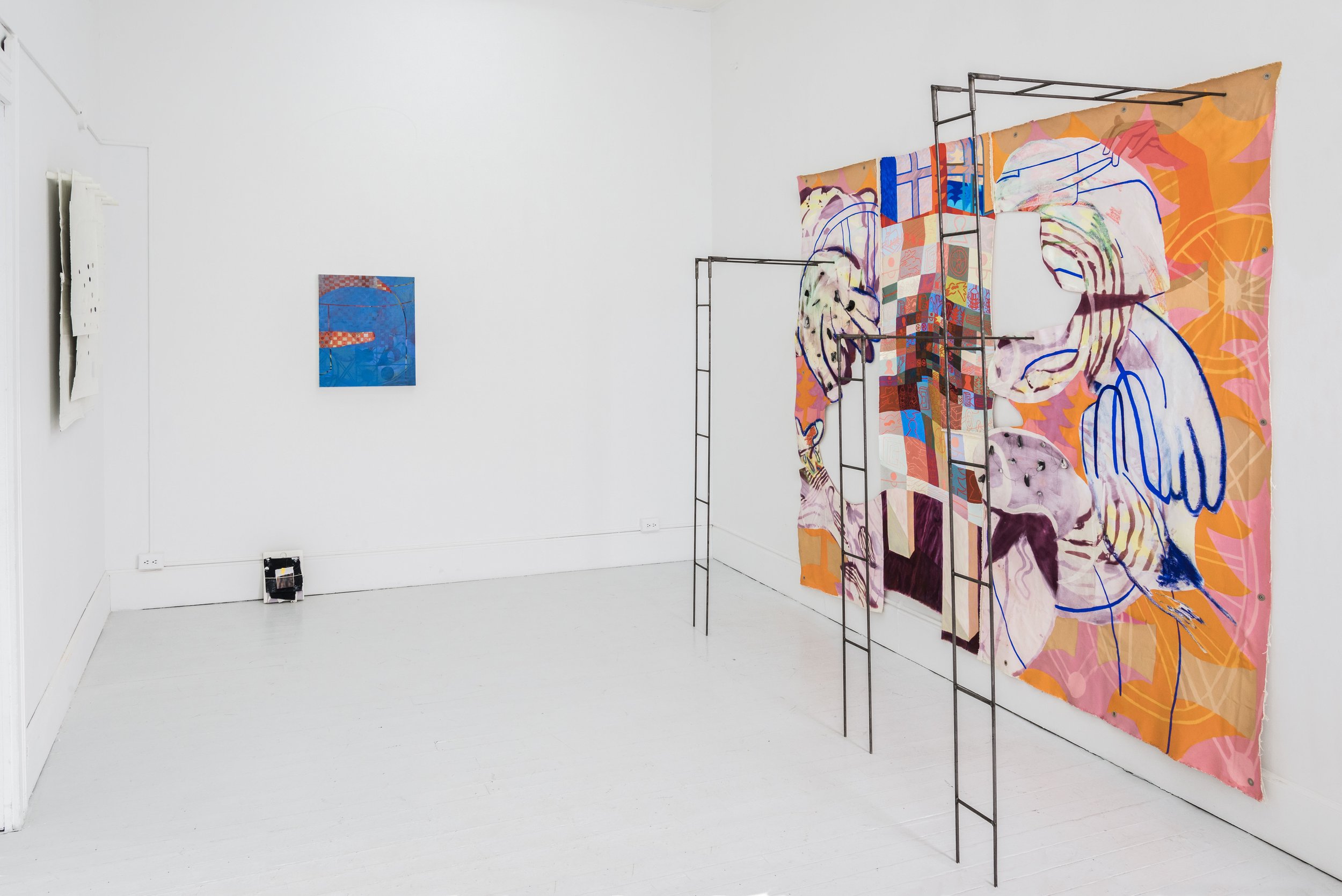
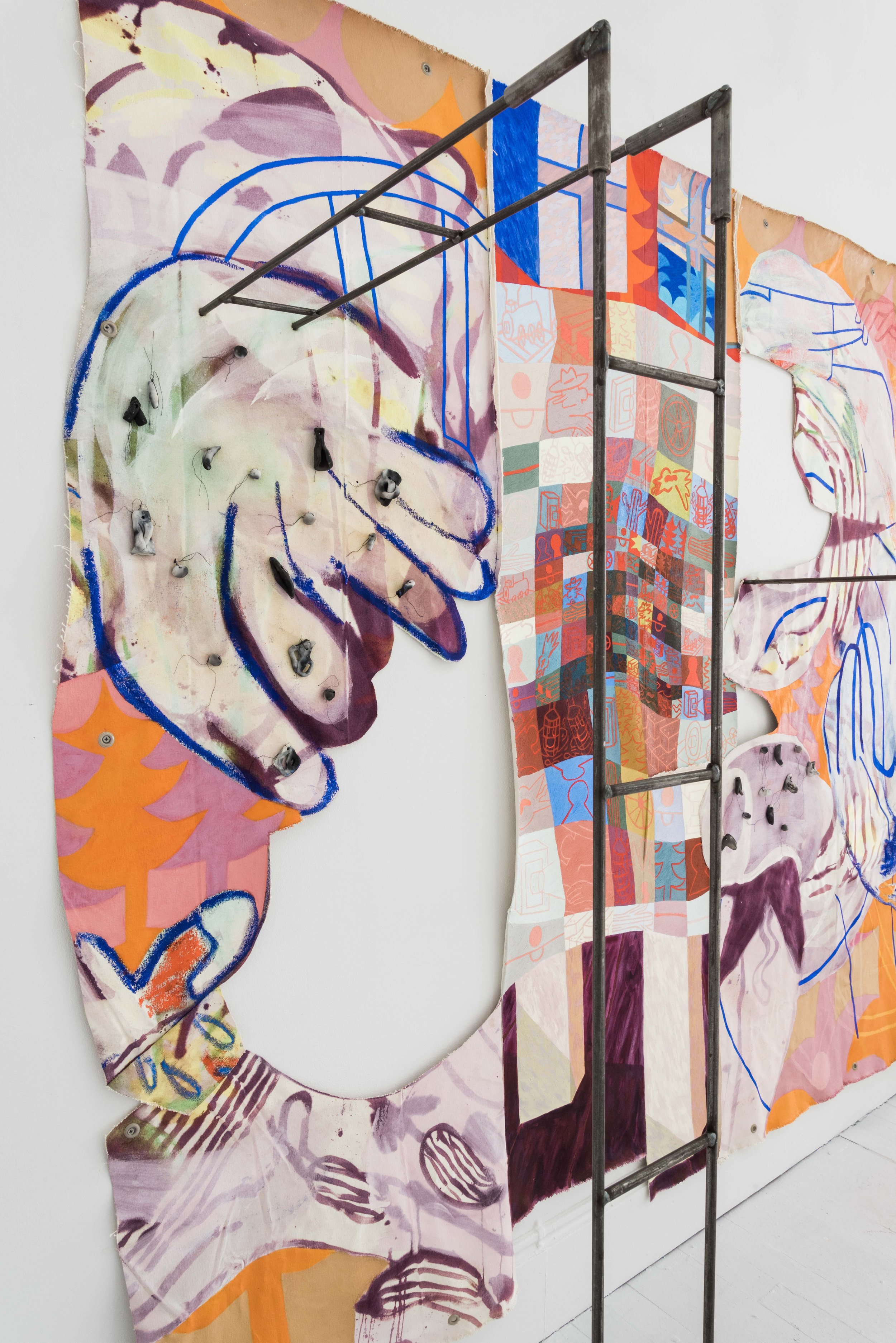
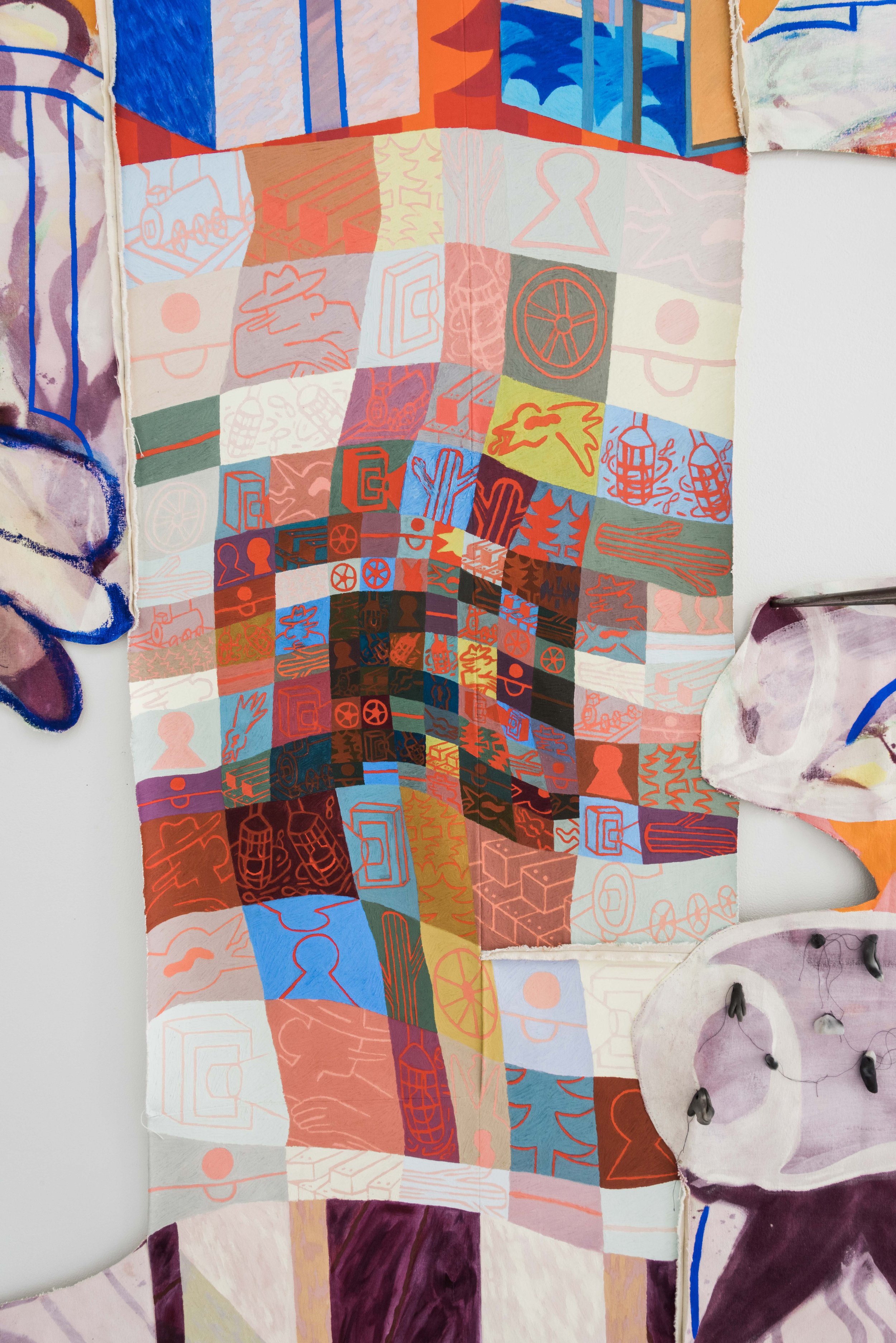
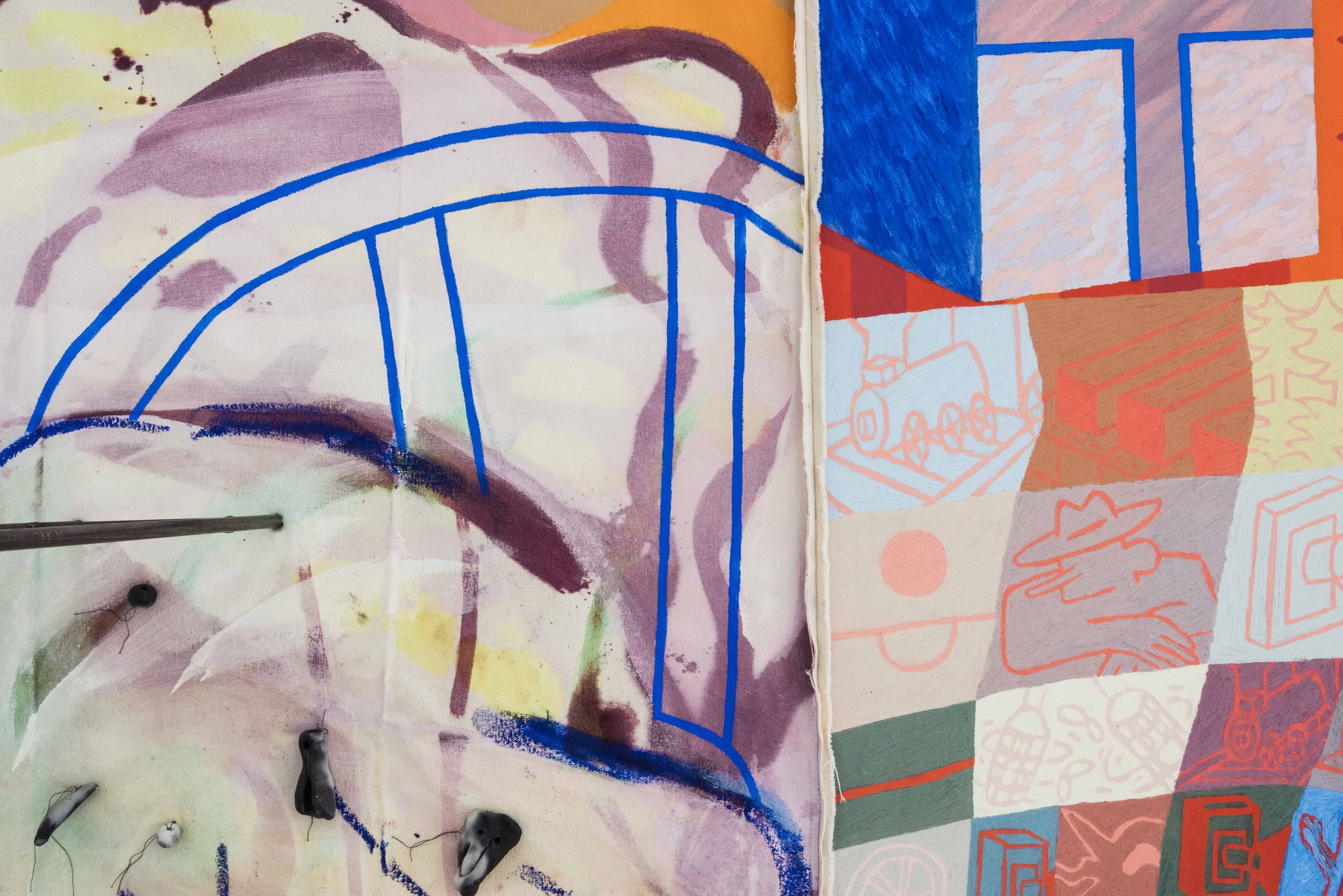
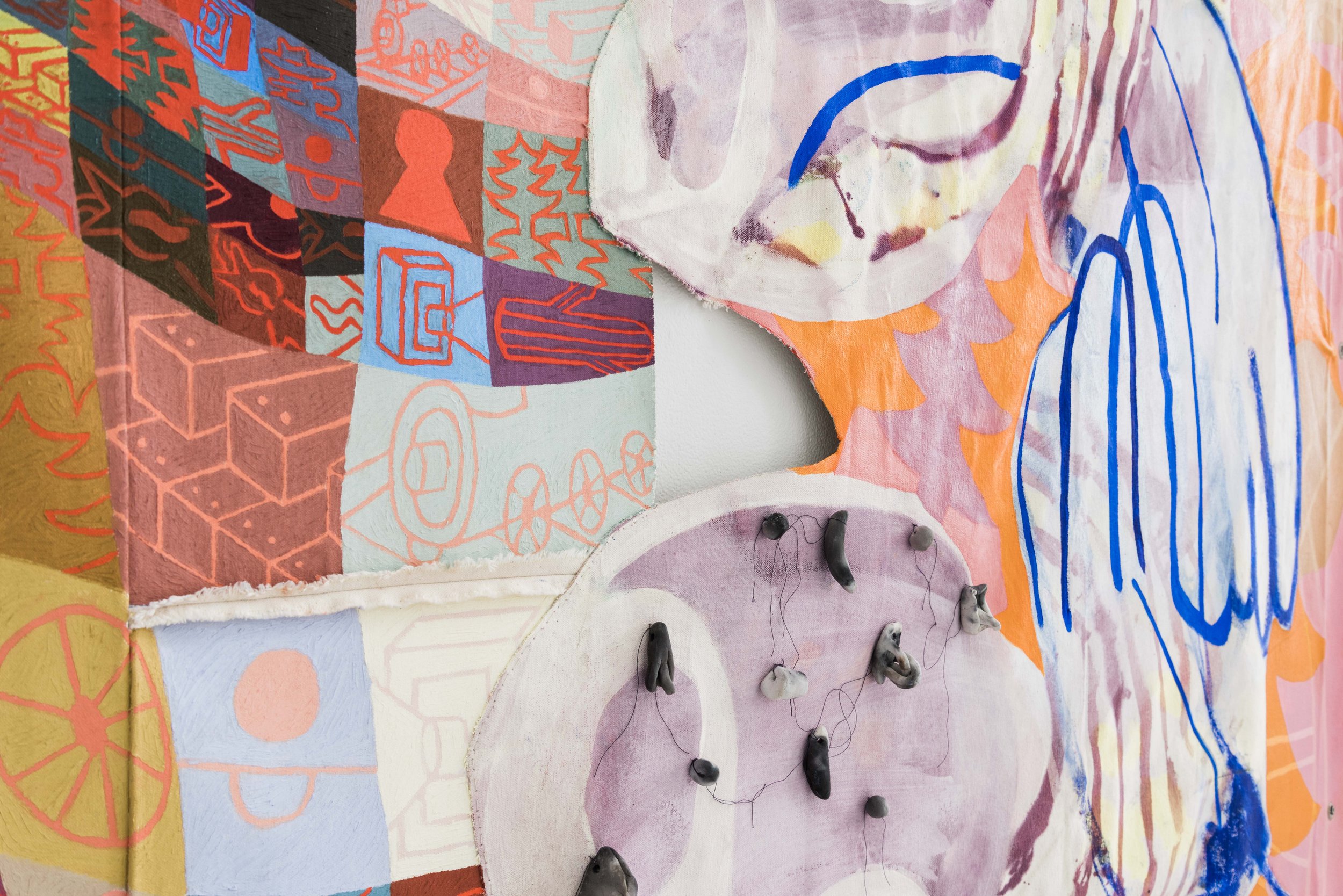
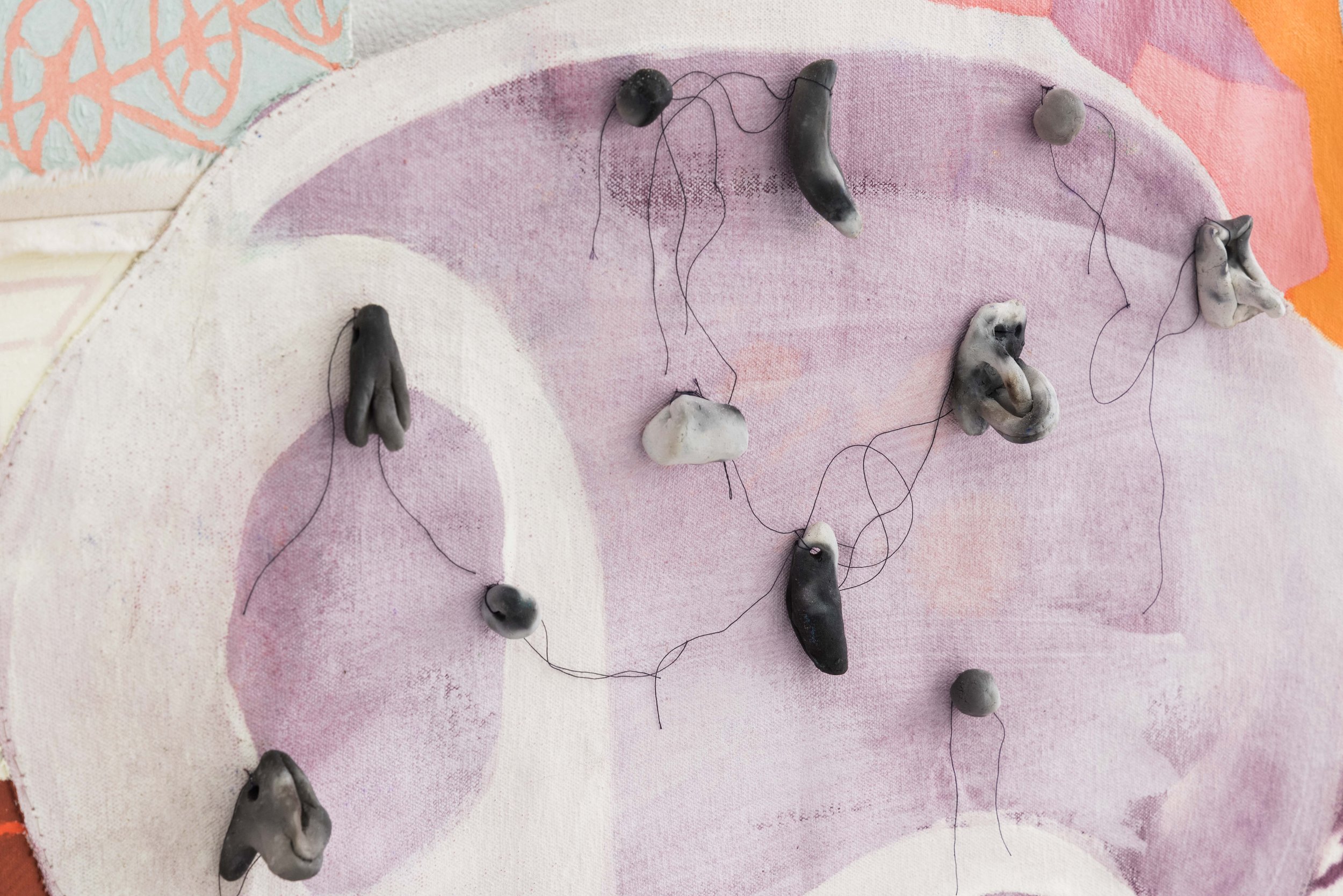
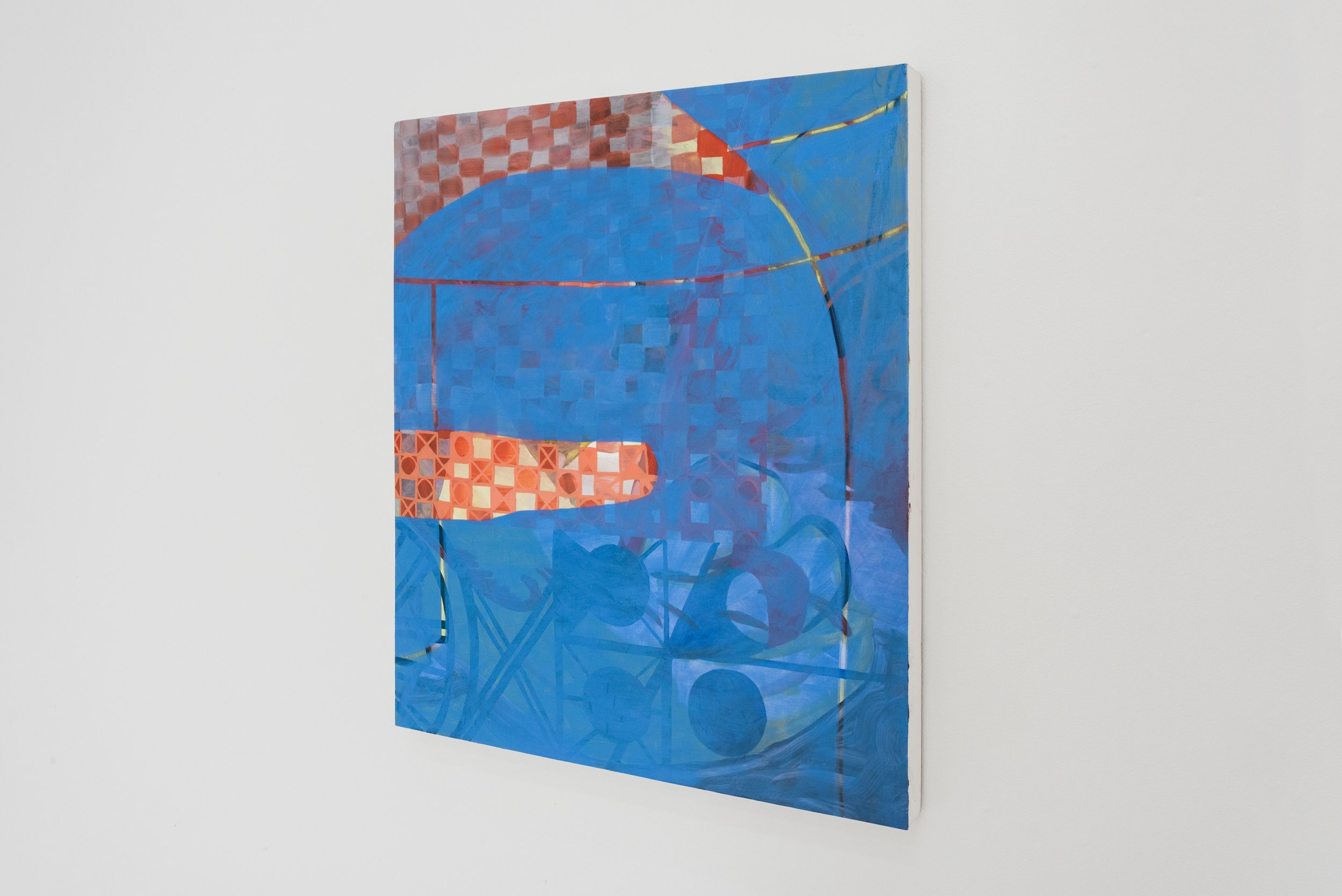
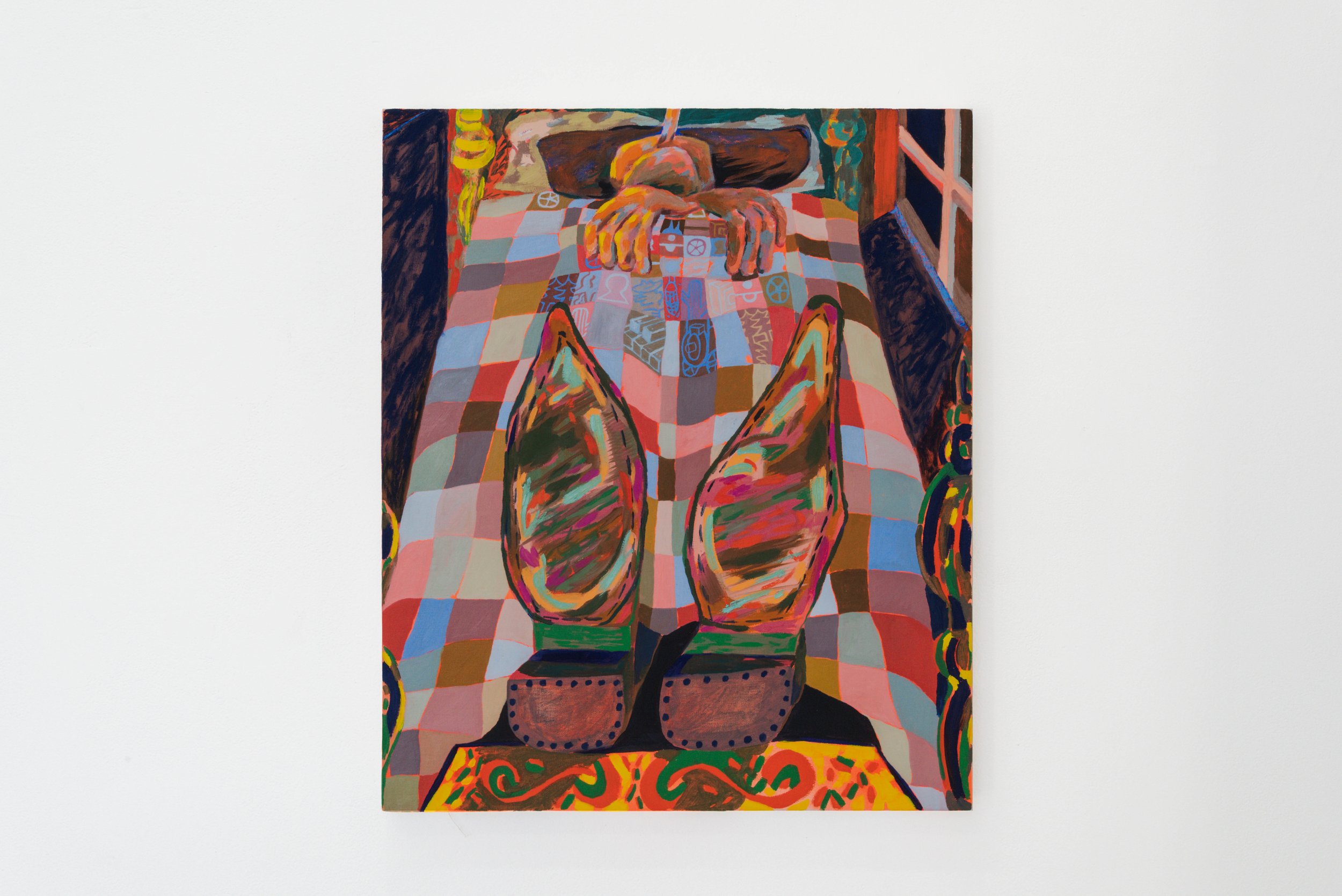
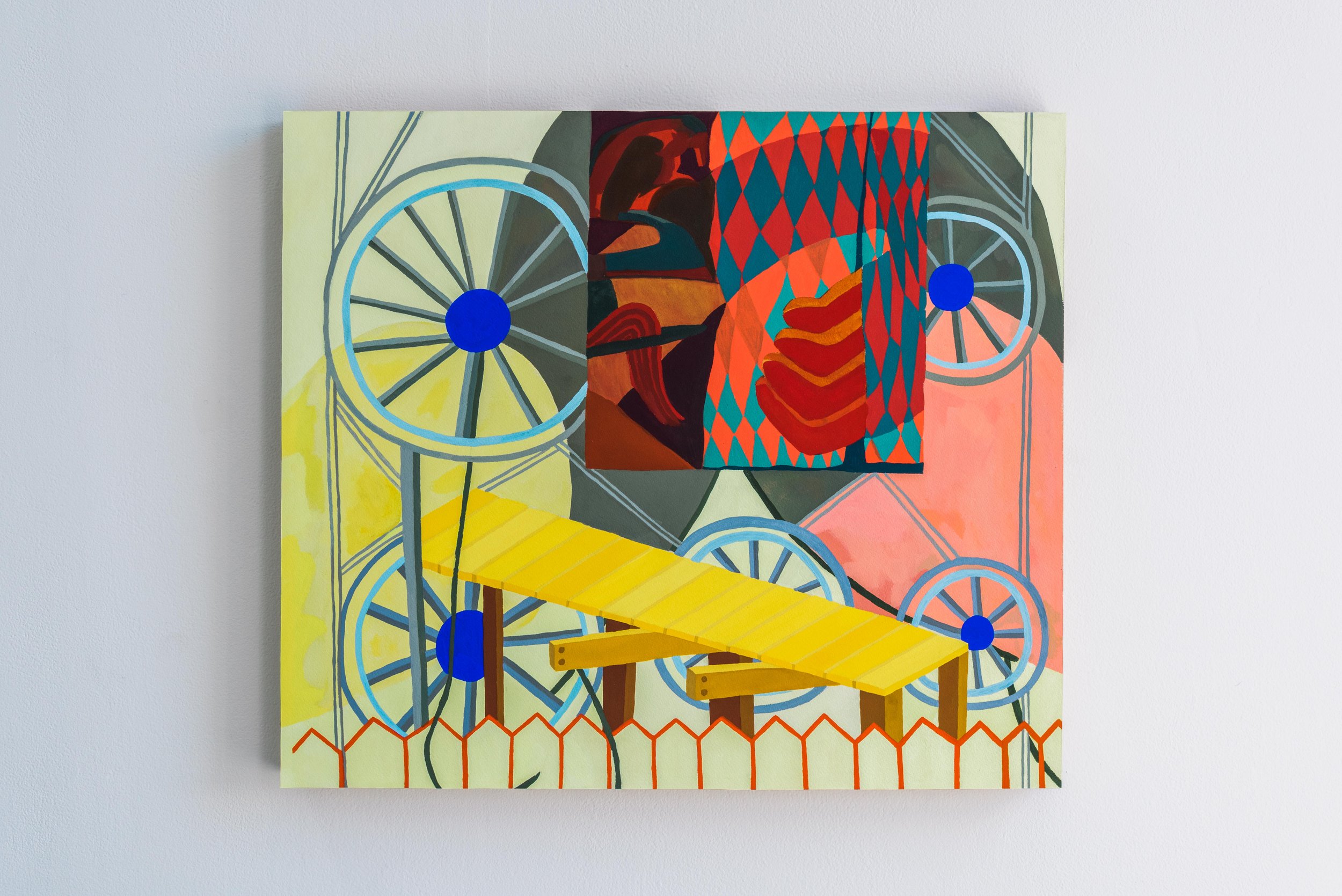

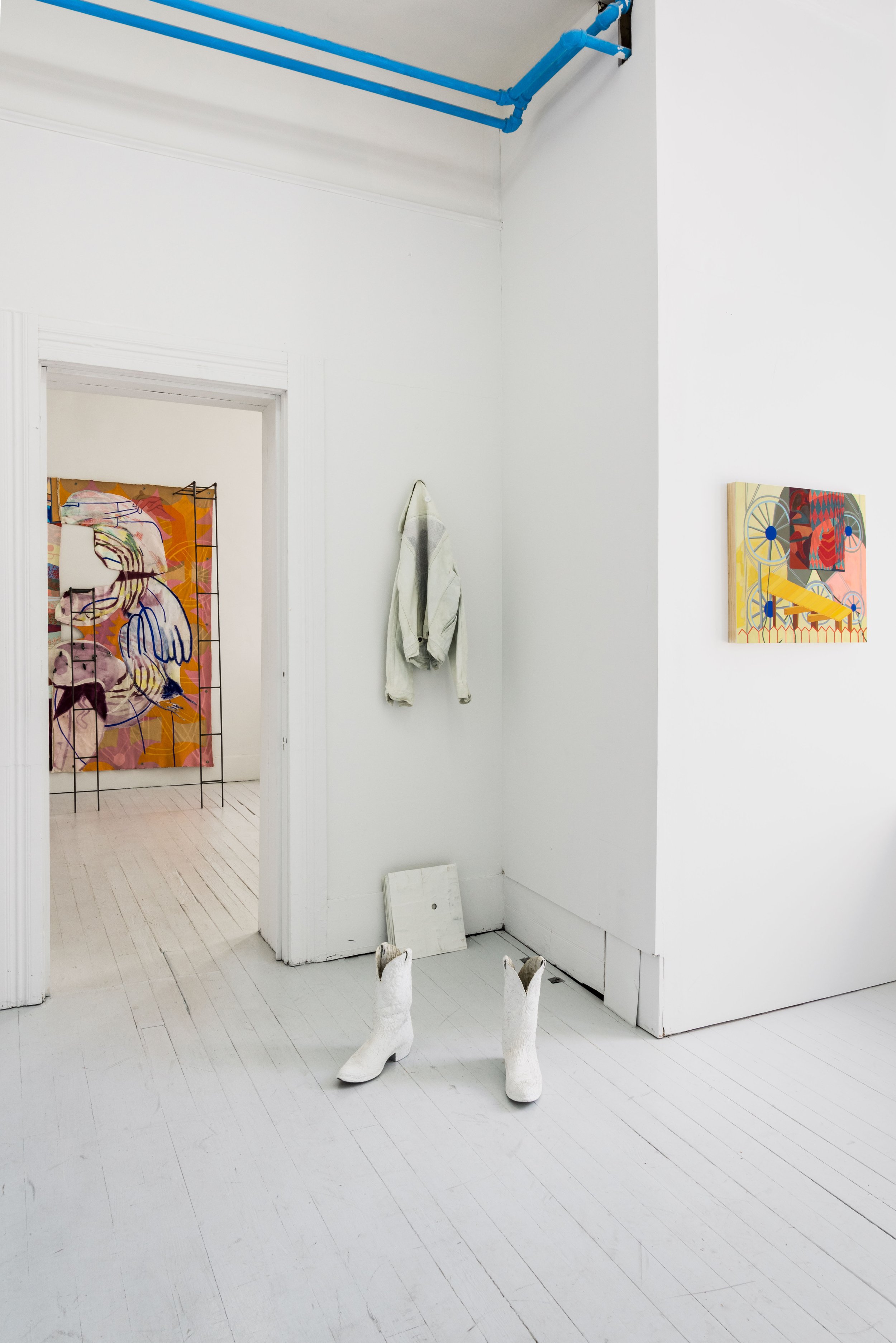
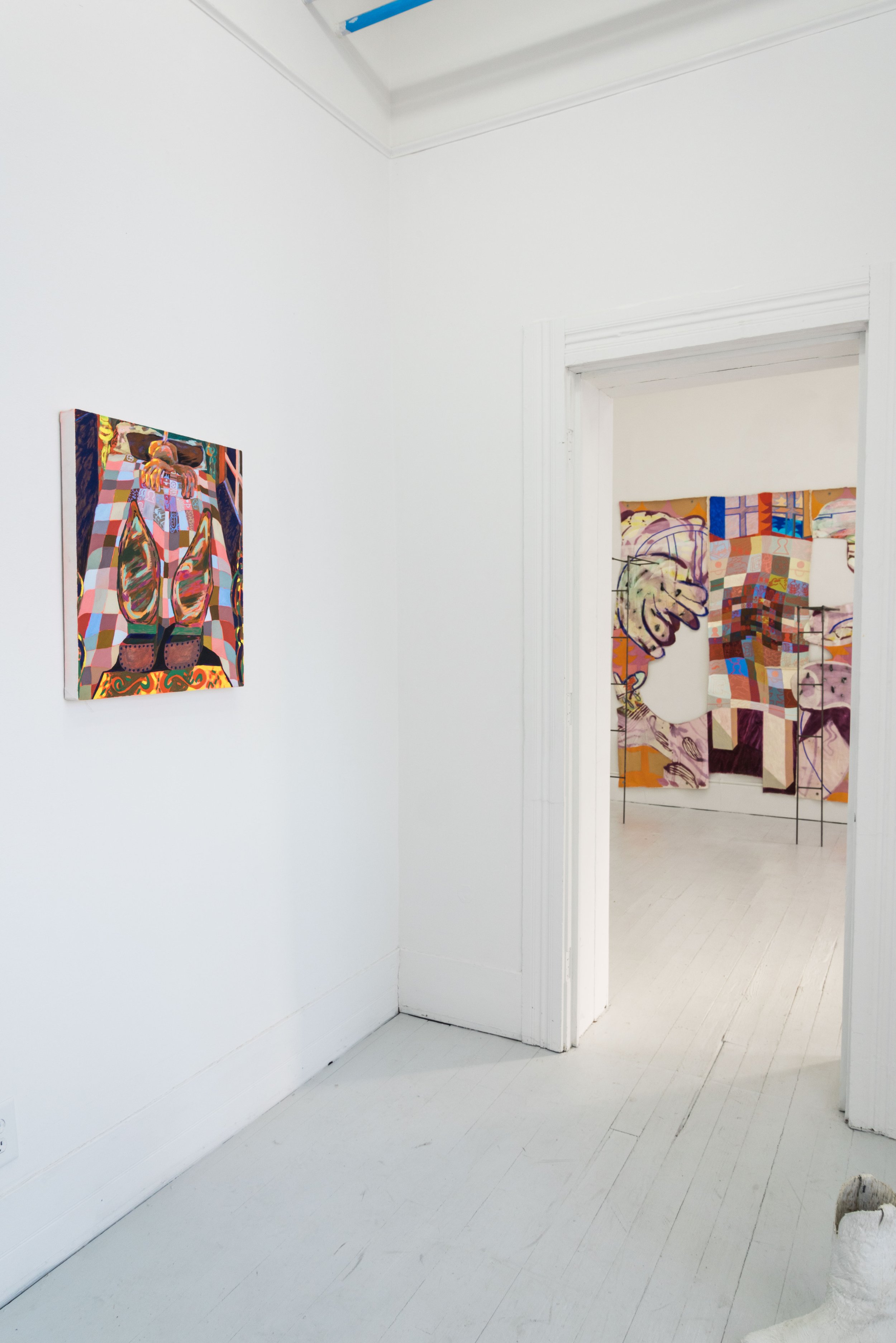
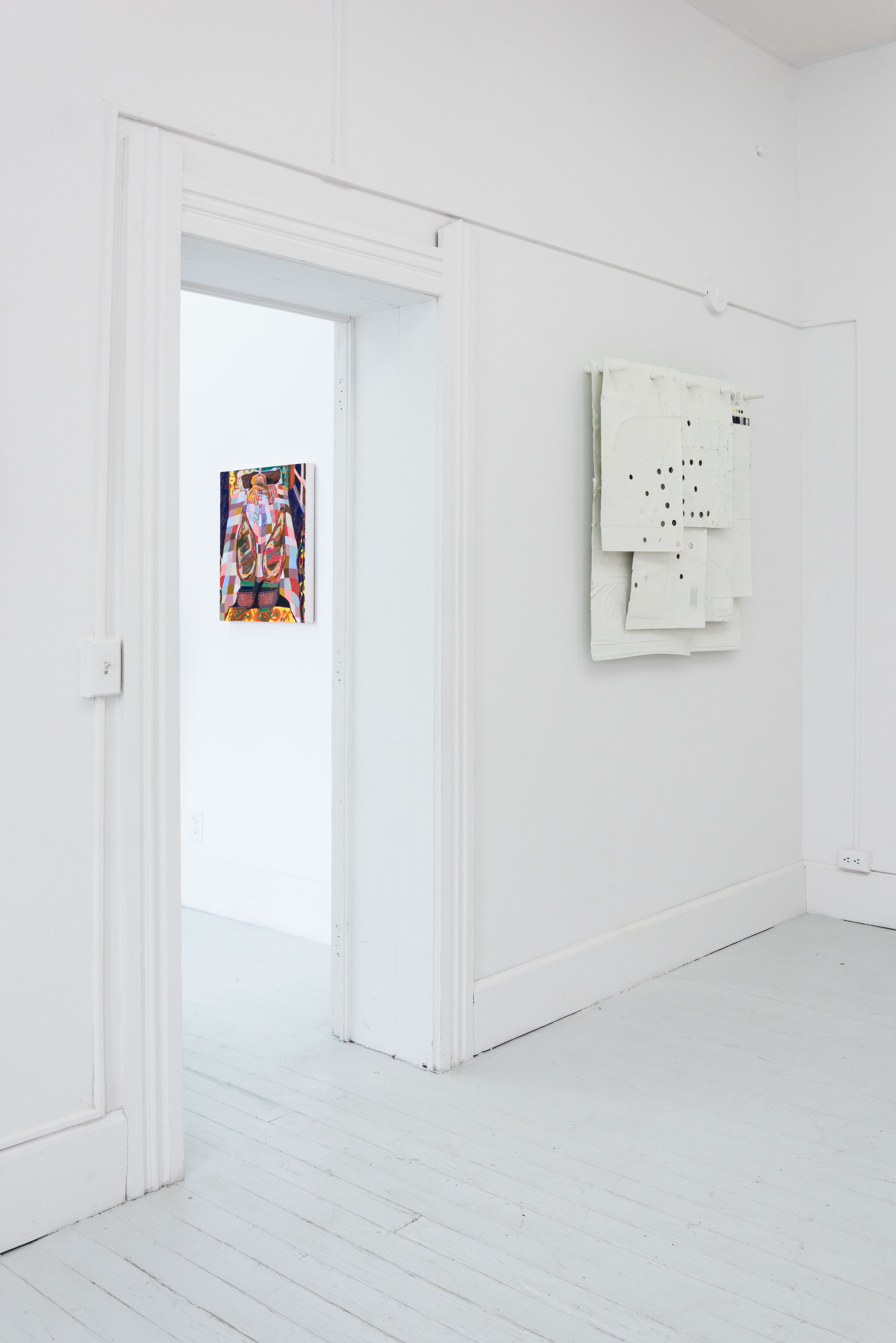
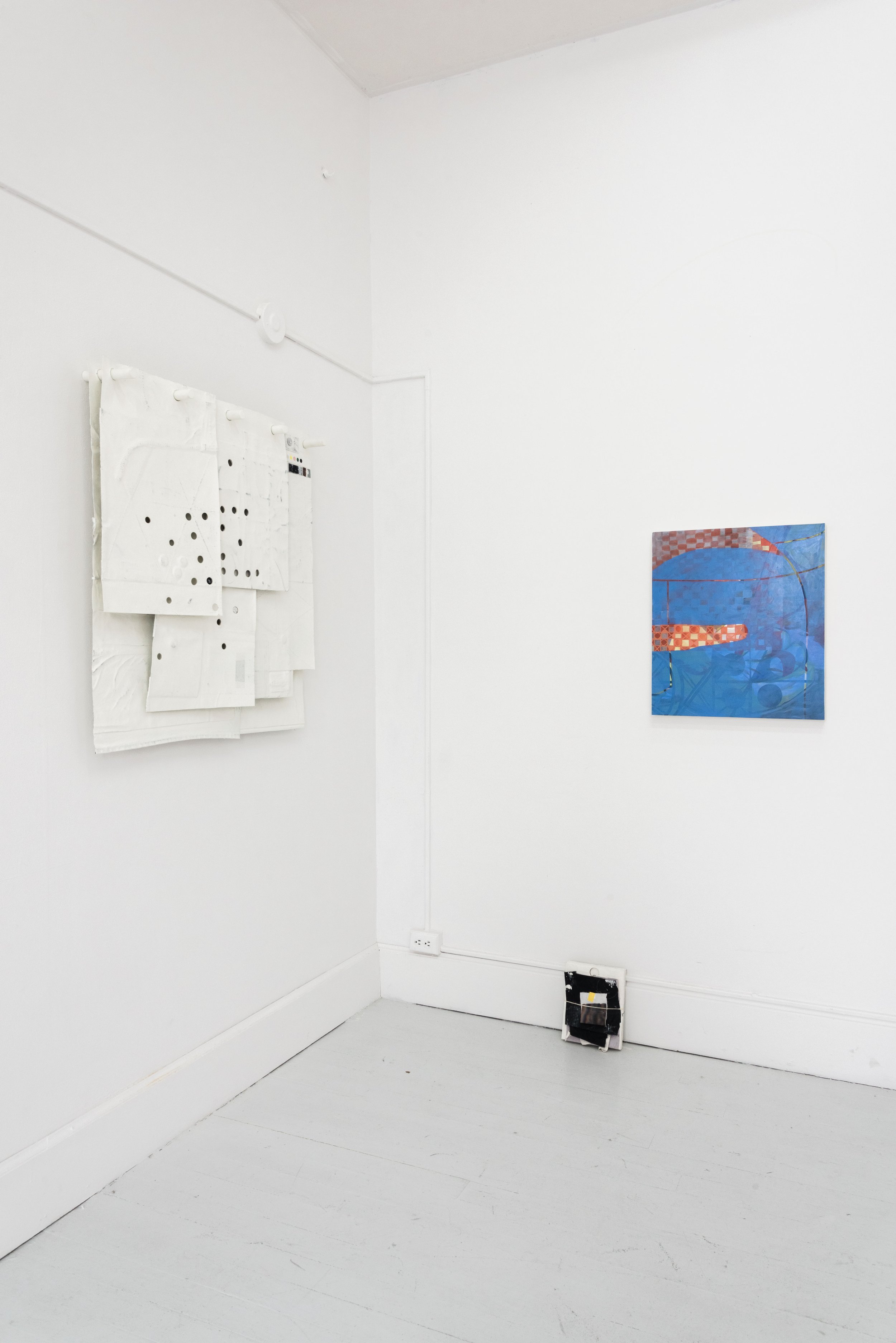
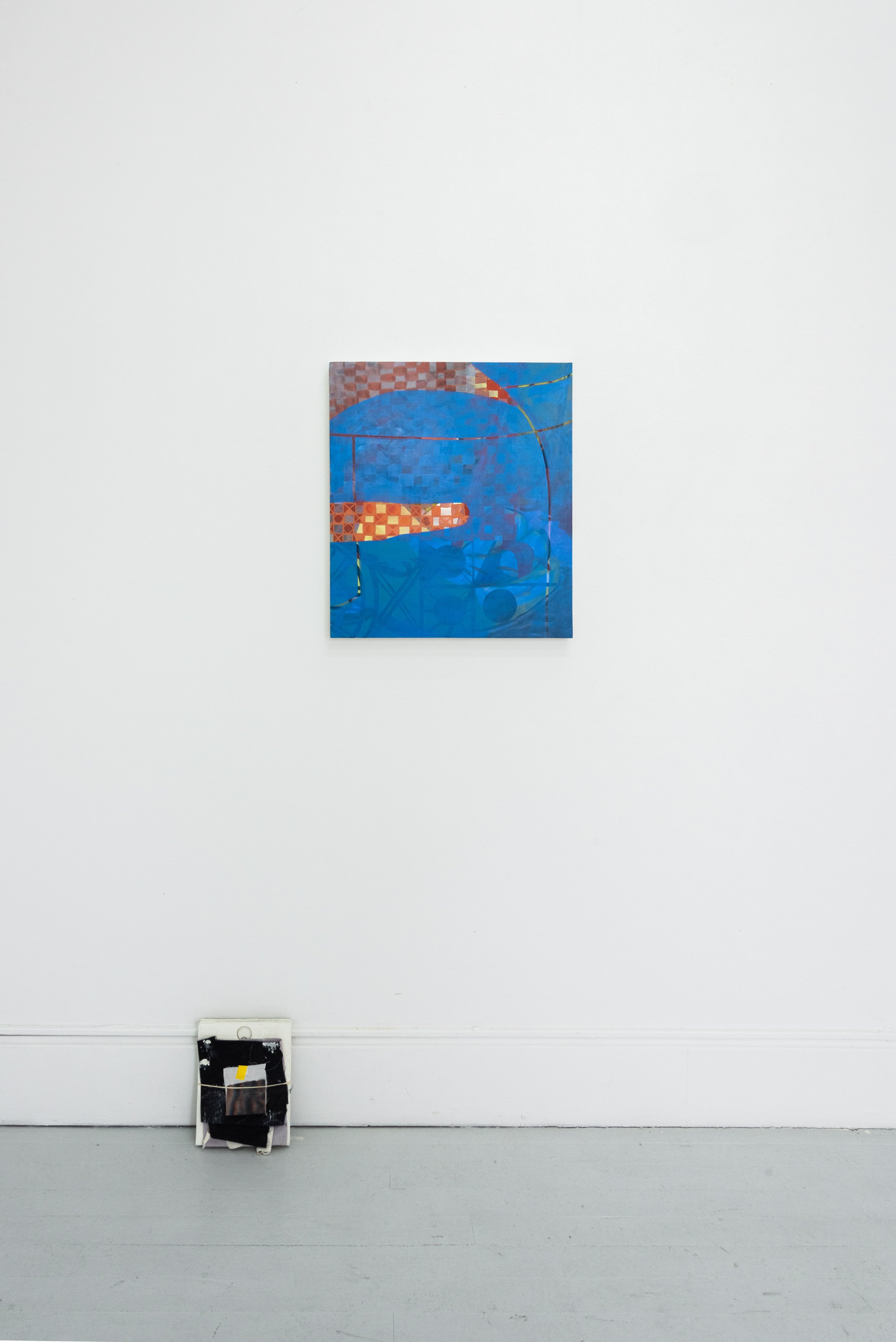
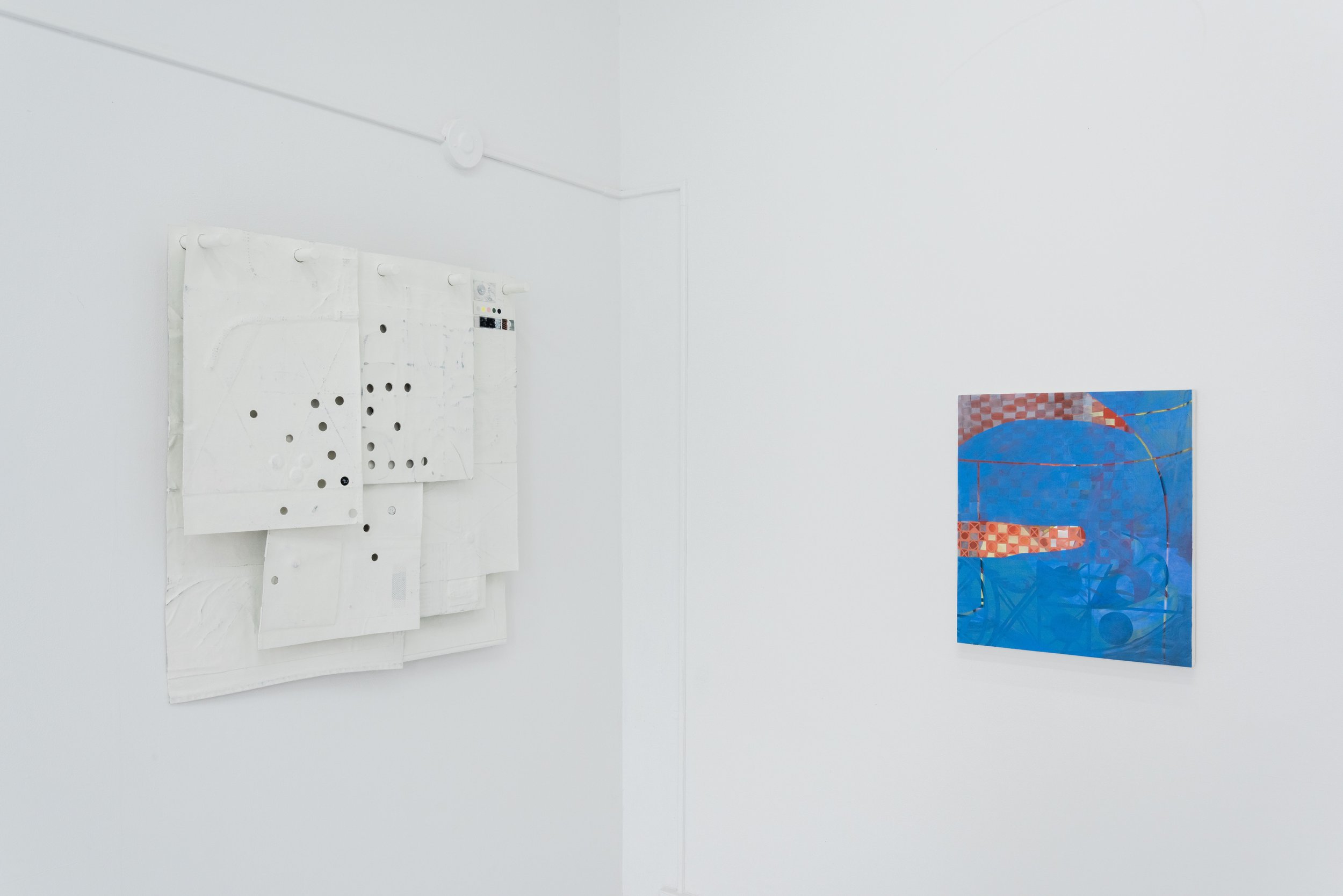
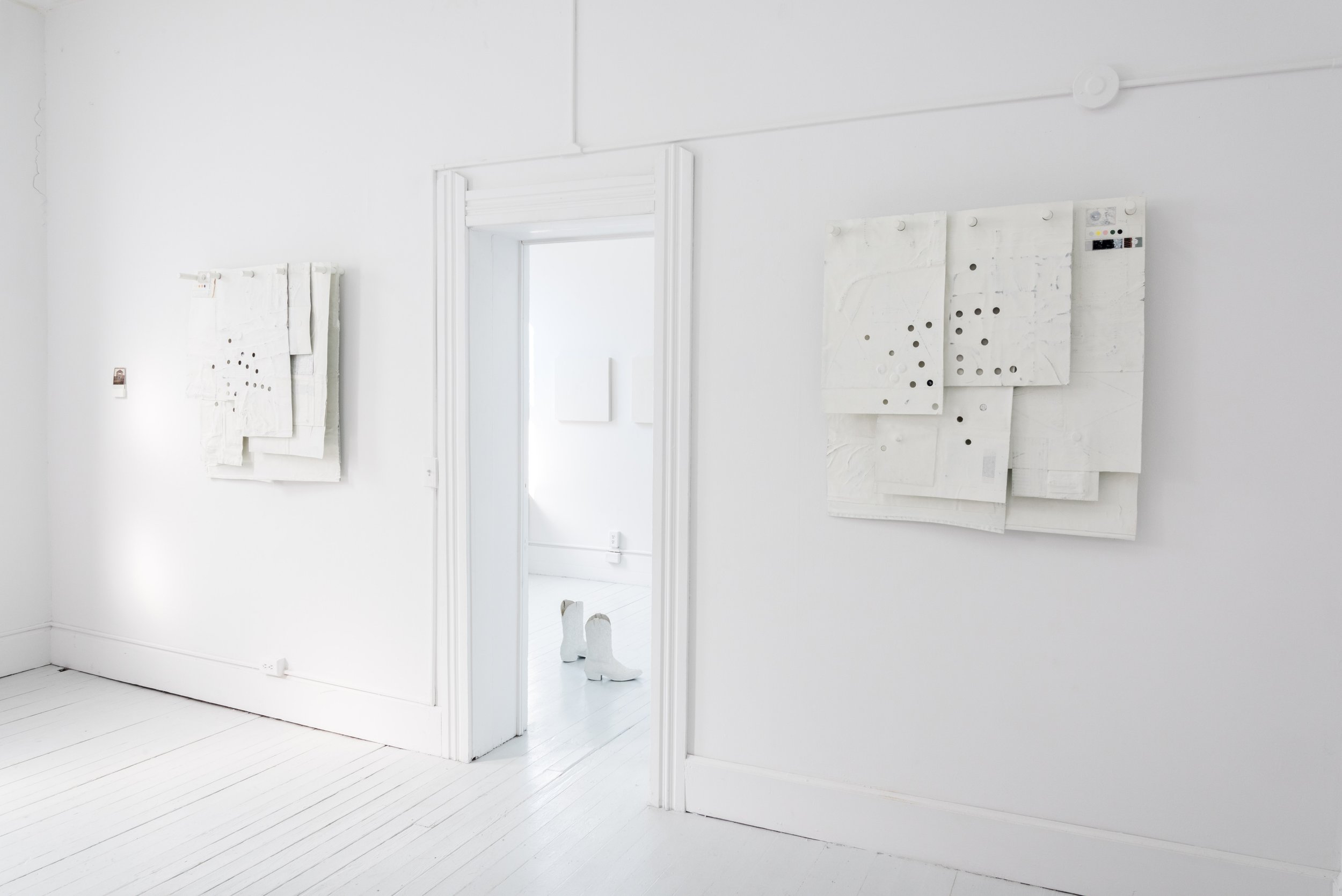


















Neon Heater, Findlay OH 2022
Hannah Parrett’s most recent body of work engages folklore surrounding the American West in the form of oil paintings and gouache drawings. She uses visual resources from the 1940’s Annie Oakley comic combined with her personal experiences growing up in the Black Hills, South Dakota to develop an archive of symbols to work with. This process seeks to re-define representations of Manifest Destiny, Cowgirl Feminism, and other mythologies constructed from regional relationships with landscape.
In the no man’s land between fictional archaeological inventory and autobiography, Nick Larsen has found terrain to map and mine both what’s present and visible in the desert landscape and, maybe more importantly, what isn’t—a fantasy about what might be, what might have been, and what could be in the "empty" spaces of the western U.S. This speculative groundwork supports other preoccupations: camouflage as landscape painting, fire retardant dispersal as action painting, color naming, place naming, ghost town reoccupation, punk merch, interior design mood boards, map legend poetics, subcultural signaling, sewing as a form of drawing, making do, shotgun spray on roadside signs, vestiges and artifacts, excavation and survey patterns, and the meaningful human activity that transforms a place into a site.